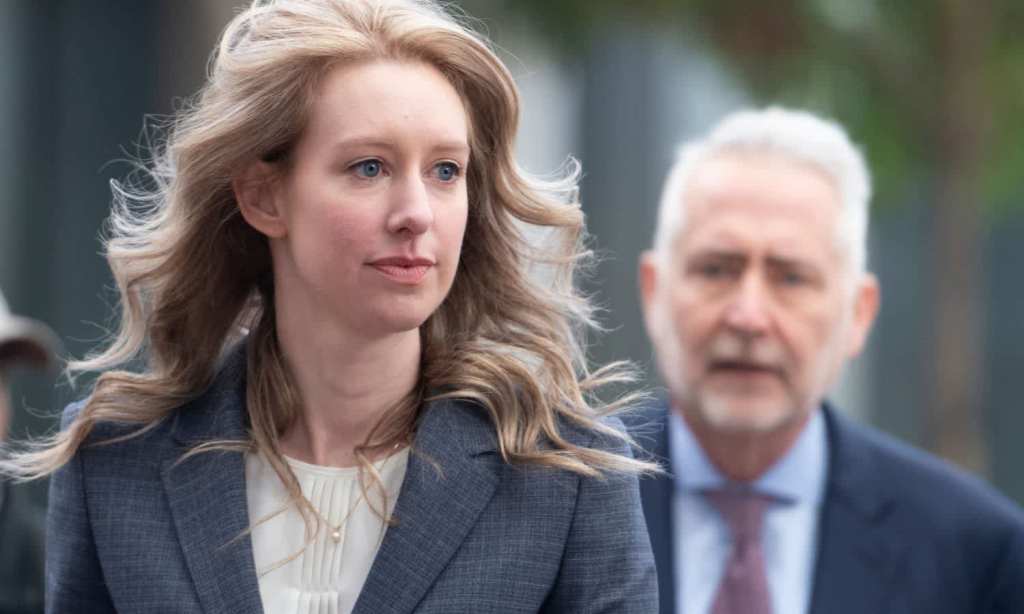Silicon Valley entrepreneur turned white-collar criminal Elizabeth Holmes has been found guilty on four of 11 charges of fraud, pertaining to her activities as the founder and CEO of Theranos.
Holmes’ fate had hung in the balance as jurors reported they were deadlocked on three of the counts she was facing. On the seventh day of deliberations following a 15-week trial, the jury told US district judge Edward Davila that they were unable to come to a unanimous verdict on the counts but were told to deliberate further on them. Despite the extra time, they were still unable to reach a conclusion before delivering their verdict on the 11 overall counts.
Holmes, now 37, pleaded not guilty to all charges of defrauding investors and patients through Theranos and faces 20 years in prison.
“She chose fraud over business failure,” prosecutor Jeff Schenk said in his closing arguments. “She chose to be dishonest with investors and patients. That choice was not only callous, it was criminal.”
A former student at Stanford University, Holmes created Theranos in 2003 — when she was just 19 years old — and became connected with various venture capitalists who could help fund her dream. Her pitch was that Theranos’ technology could not only test for thousands of different illnesses with a single drop of blood, obtained painlessly from a patient, but deliver the test results in just hours.
If successful, the tech would have been revolutionary, slashing costs in the $75 billion-a-year blood testing industry. Investors were so convinced of her mission that they coughed up USD $400 million in venture capital. Media tycoon Rupert Murdoch was among her backers.
In 2013, Theranos testing became available in Walgreens pharmacies across America and the company was valued at USD $9 billion. Holmes was also named by Forbes as the world’s youngest self-made female billionaire.
However, not all was as it seemed at the Theranos Silicon Valley headquarters, as
employees reported that the company had been playing the system and “failing to report test results that raised questions about the precision of the Edison system.”
Investigative journalist John Carreyrou conducted a deep dive into the operation for the Wall Street Journal, discovering and reporting that Holmes’ company was hardly even using the machines they had claimed could revolutionise the health industry and instead relying mostly on older technology from other companies for the bulk of its testing.
By 2016, Forbes revised its estimate of Holmes’s net worth to zero. In 2018, the US Securities and Exchange Commission charged Theranos and Holmes with deceiving investors by “massive fraud” through false or exaggerated claims about the accuracy of the company’s blood-testing technology. A federal grand jury went on to indict Holmes and former Theranos chief operating officer (and Holmes’ ex-boyfriend) Ramesh Balwani on nine counts of wire fraud and two counts of conspiracy to commit wire fraud for distributing blood tests with falsified results to consumers.
Holmes’ lawyers argued that Balwani sexually abused and emotionally controlled her during Theranos’ tenure, thereby impairing her mental state.
Balwani denies these allegations and faces his own fraud trial in 2022.
During the trial, Holmes was confronted with evidence that she had falsified documents that supported her claims of Theranos’ success — even going so far as adding logos of various pharmaceutical firms to (falsely) imply they had endorsed her vision.
Both Holmes and her legal team argued that she did not knowingly commit fraud but rather failed to recognise the shortcomings of the technology she had created.
The story of Holmes and Theranos has already been covered in Carreyrou’s book Bad Blood: Secrets and Lies in a Silicon Valley. and a documentary for HBO, and will next be explored by The Big Short filmmaker Adam McKay in a movie starring Don’t Look Up actress Jennifer Lawrence as Holmes.
Read more stories from The Latch and subscribe to our email newsletter.







